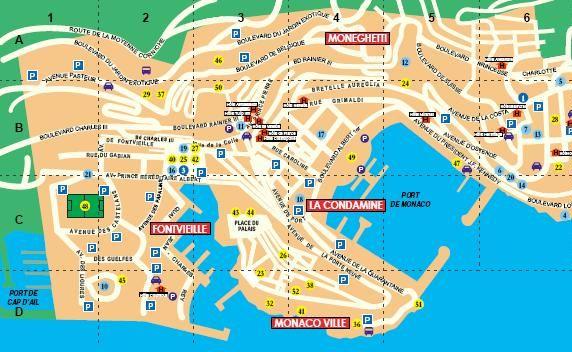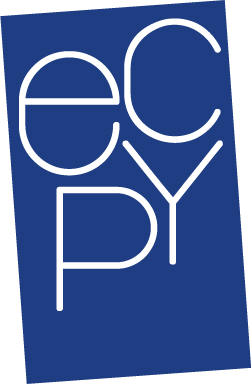Monaco – Port of Fontvielle
















Port of Fontvielle Monaco - Berths for Stopovers and Short-term Rental - Very Limited Seasonal and Long-term Rental - No Leaseholds for Sale
| Localisation: | Monaco, Fontvielle |
|---|---|
| Réf. Broker No: | PORT OF FONTVIELLE MONACO |
| Télécharger fiches PDF ci-dessous pour plus de détails du Monaco – Port of Fontvielle | |
|---|---|
| Brochure PDF | Télécharger |
| Spécification PDF | Télécharger |
| Additionnelle PDF | Télécharger |
Berth Description
PORT DE FONTVIELLE MONACO
Port de Fontvielle Monaco – Places de Port pour Location de Passage et à Court Terme – Location Saisonnière et à Long Terme Très Limitée – Pas de Places à la Vente en Amodiation
Construit à la fin des années 70, le PORT DE FONTVIELLE est situé au pied du rocher de Monaco, côté ouest, avec une superficie d’environ 8 hectares de plan d’eau. Comme le Port Hercule, il est géré par la Société d’Exploitation des Ports de Monaco (SEPM). Il peut accueillir 275 bateaux de taille inferieure à 30 m.
À proximité du PORT DE FONTVIELLE, se trouvent de nombreux restaurants bordant le plan d’eau, un quartier d’affaires, un centre commercial, le grand complexe sportif du stade Louis II et un héliport.
Le PORT DE FONTVIELLE est certainement un des mieux abrités de la région puisque protégé des vents d’Est par le Rocher et de la houle de sud et d’ouest par sa grande digue. En plein cœur du quartier résidentiel de Fontvieille le port de plaisance est une véritable marina donnant, à proximité immédiate, toutes les commodités aux plaisanciers de passage comme aux permanents qui peuvent y trouver commerces, divertissement et loisirs. Les plaisanciers ont à leur disposition tous les services nécessaires au bon fonctionnement d’un port de plaisance : eau, électricité à chacune des places ainsi que des sanitaires et des douches.
Les places au PORT DE FONTVIELLE sont très prisées et la demande est très élevée. Il est extrêmement difficile d’y louer une place de port, même pour une courte durée car les Ports de Monaco privilégient en priorité les demandes des résidents Monégasques (longue liste d’attente).
POINTS CLÉS
• Aéroport International de Nice-Côte d’Azur à 32 km
• Héliport
• Train : Accès à gare SNCF
• Au cœur du quartier de Fontvieille
• Port très bien protégée
• Points d’intérêt culturel partout en Principauté
• Shopping grande surface, Supermarché
• Centre d’affaires / Bureaux
CARACTÉRISTIQUES PRINCIPALES
Latitude : 43° 43’ 43.53” N
Longitude: 7° 25’ 17.42” E
Carte SHOM : N° 6881
Anneaux d’Amarrage : 275 (≤ 30 m) dont 16 visiteurs suivant la disponibilité
Places de passage : Selon disponibilités (Rares)
Taille minimale : 4 m
Taille maximale : 30 m
Profondeur : 1,5 m à 15 m (dans les bassins le tirant d’eau ne dépasse pas 3 mètres)
Amarrage : 4 quais en béton et 4 pannes flottantes (dont 3 nouvelles en béton)
Amers remarquables : L’entrée du port se situe à 100 m le long de la falaise, à l’Ouest du Musée Océanographique (reconnaissable par sa forme rectangulaire blanche bâti dans la falaise). L’entrée se fait par l’Est
SERVICES ET INFORMATIONS UTILES
VHF : Canal 9
Accueil : En saison de 8h à 22h, Hors saison de 8h à 20h
Accueil visiteurs suivant le départ en croisière des titulaires de contrats annuels
Port gardienné 7 jours sur 7 et 24 heures sur 24, webcam
Commodités : Sanitaires 4 WC, 4 douches, Téléphone public et téléphone à bord sur demande, Wifi, TV à quai, laverie automatique en ville, glace au supermarché de la grande surface
Électricité : À quai et sur pontons 220V / 380V sur tous les postes
Eau douce : Disponible sur tous les postes d’amarrage
Carburant : Station BP au port Hercule
Conteneurs pour huiles usées et batteries
Pompage des eaux usées : Gratuit, station BP au Port Hercule
Attention : Port généralement très abrité mais il peut y avoir de la houle à l’entrée du port et dans le premier bassin par forts vents d’Est ou Sud
COMMENTAIRES
Sauf si vous êtes résident Monégasque, pas de places de port disponibles en amodiation ni en location de longue-durée au PORT DE FONTVIELLE MONACO, nous pouvons néanmoins gérer, une place de port en location, pour une période limitée ou pour un charter événementiel statique à quai – consultez Allied Yachting pour les disponibilités et les tarifs. Nombre limité de postes d’amarrage en location de passage, saisonniers ou longue durée dans la plupart des tailles.
Nos principaux charters événementiels de yachts se produisent pendant le Grand prix de Formule 1 de Monaco. Nous pouvons également assurer une place de port pendant le Monaco Yacht Show, auquel nous participons annuellement, pour présenter votre yacht ou Super-yacht neuf ou d’occasion.
Monaco – Port of Fontvielle Berth Video
Berth Emplacement
Envoyer demande
Merci de nous transmettre votre demande et nous allons vous répondre bientôt.
Тел: +336 75 96 41 41
E-mail: jlacombe@alliedyachting.com






